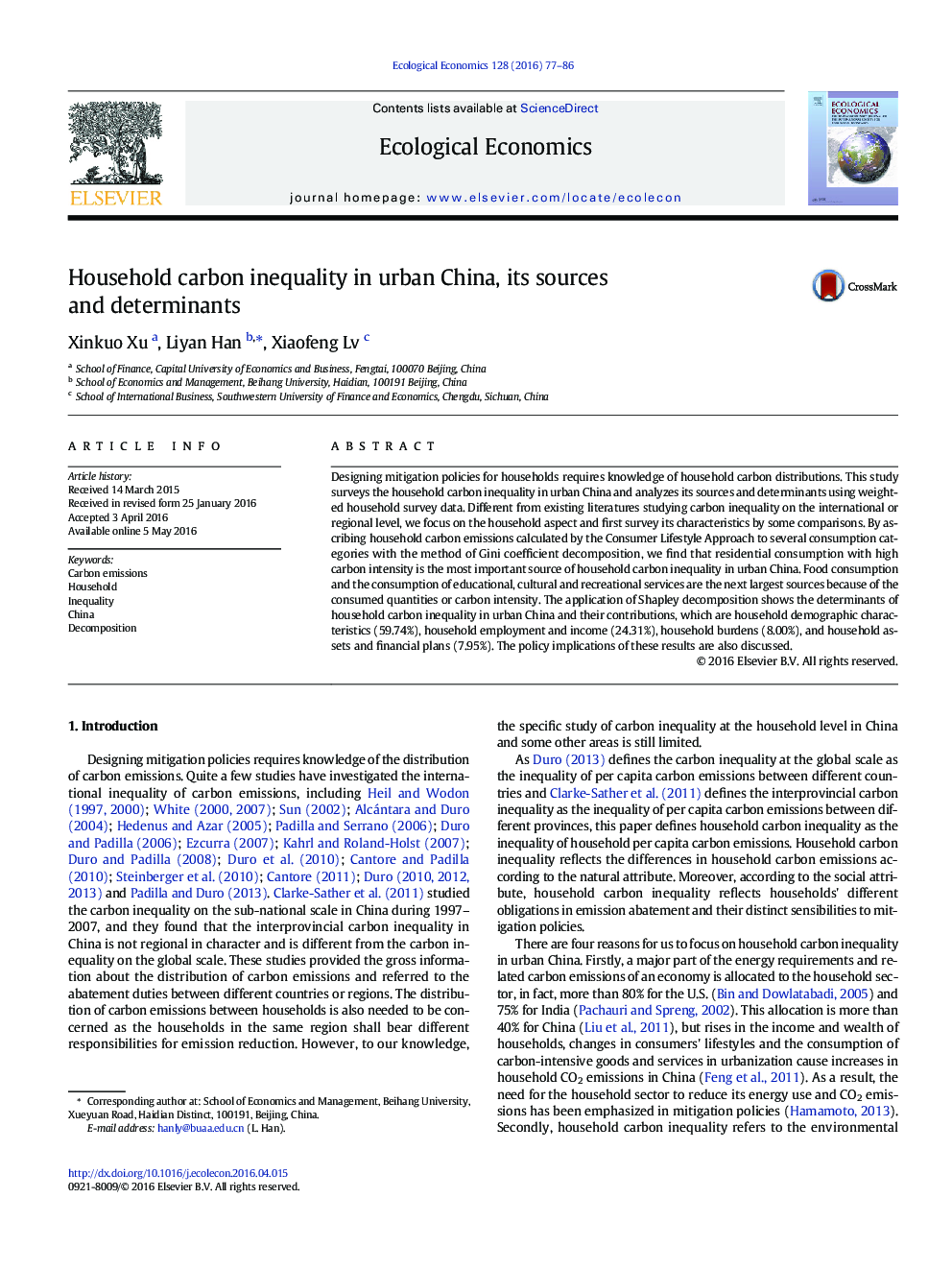| کد مقاله | کد نشریه | سال انتشار | مقاله انگلیسی | نسخه تمام متن |
|---|---|---|---|---|
| 5049102 | 1476351 | 2016 | 10 صفحه PDF | دانلود رایگان |
- We use the Consumer Lifestyle Approach to calculate household carbon emissions.
- We advance series methods to evaluate and decompose household carbon inequality.
- Carbon-intensive residence is the main source of the household carbon inequality.
- Some key household characteristics determine the household carbon inequality.
Designing mitigation policies for households requires knowledge of household carbon distributions. This study surveys the household carbon inequality in urban China and analyzes its sources and determinants using weighted household survey data. Different from existing literatures studying carbon inequality on the international or regional level, we focus on the household aspect and first survey its characteristics by some comparisons. By ascribing household carbon emissions calculated by the Consumer Lifestyle Approach to several consumption categories with the method of Gini coefficient decomposition, we find that residential consumption with high carbon intensity is the most important source of household carbon inequality in urban China. Food consumption and the consumption of educational, cultural and recreational services are the next largest sources because of the consumed quantities or carbon intensity. The application of Shapley decomposition shows the determinants of household carbon inequality in urban China and their contributions, which are household demographic characteristics (59.74%), household employment and income (24.31%), household burdens (8.00%), and household assets and financial plans (7.95%). The policy implications of these results are also discussed.
Journal: Ecological Economics - Volume 128, August 2016, Pages 77-86
